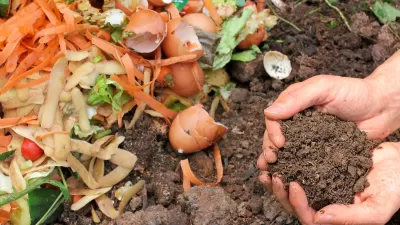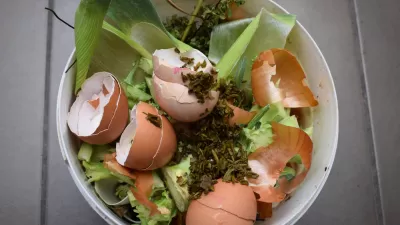The Minneapolis City Council is considering steps that would increase the amount of its waste stream that gets recycled.
"A public hearing to ban hard-to-recycle foam takeout containers is scheduled for Monday and City Hall is drafting a plan to pick up food scraps and other organic items from every home by next year, something several metro-area cities already do," reports Maya Rao. Composting pilot programs have already begun in eight neighborhoods around the city.
"Minneapolis has a long way to go to catch up to the West Coast cities that have pioneered zero waste, meaning at least 90 percent of the garbage is recycled, composted or reused. Just 37 percent of its garbage is now recycled and composted, compared with 77 percent in San Francisco and 56 percent in Seattle — cities that require their citizens to do it."
Challenges for the city include expanding its recycling program to commercial garbage. But a bill in the Minnesota State Legislature could help with that—"granting $7 million more in recycling funding for counties and raising recycling in the metro from 50 to 75 percent of all waste." Also, the city has already seen evidence of low participation in the composting pilot program in the affluent neighborhood of Linden Hills. A ban on plastic bags and requirements for recycling of construction materials are also completely speculative at this point.
FULL STORY: Where has all the trash gone? Minneapolis eyes 'zero waste'

Planetizen Federal Action Tracker
A weekly monitor of how Trump’s orders and actions are impacting planners and planning in America.

Maui's Vacation Rental Debate Turns Ugly
Verbal attacks, misinformation campaigns and fistfights plague a high-stakes debate to convert thousands of vacation rentals into long-term housing.

San Francisco Suspends Traffic Calming Amidst Record Deaths
Citing “a challenging fiscal landscape,” the city will cease the program on the heels of 42 traffic deaths, including 24 pedestrians.

Defunct Pittsburgh Power Plant to Become Residential Tower
A decommissioned steam heat plant will be redeveloped into almost 100 affordable housing units.

Trump Prompts Restructuring of Transportation Research Board in “Unprecedented Overreach”
The TRB has eliminated more than half of its committees including those focused on climate, equity, and cities.

Amtrak Rolls Out New Orleans to Alabama “Mardi Gras” Train
The new service will operate morning and evening departures between Mobile and New Orleans.
Urban Design for Planners 1: Software Tools
This six-course series explores essential urban design concepts using open source software and equips planners with the tools they need to participate fully in the urban design process.
Planning for Universal Design
Learn the tools for implementing Universal Design in planning regulations.
Heyer Gruel & Associates PA
JM Goldson LLC
Custer County Colorado
City of Camden Redevelopment Agency
City of Astoria
Transportation Research & Education Center (TREC) at Portland State University
Jefferson Parish Government
Camden Redevelopment Agency
City of Claremont




























